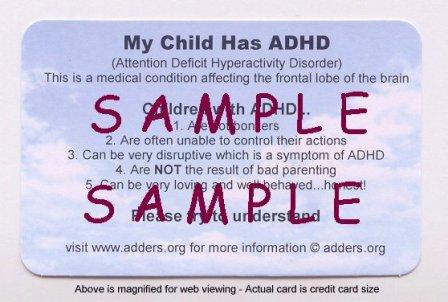Procedure for appealing student's exclusion from school in the UK.
1. How can I appeal?
You must appeal in writing to an independent appeal panel, setting out the grounds on which your appeal is made. Please complete the appeal form EXC/02 sent to you with this booklet and send it, together with any other relevant documents, to:
The Chief Clerk to the Appeal Panels, Conciliation and Appeals Unit (CAU), County Hall. Or the address which will be in your letter from the school advising you of the exclusion.
We must receive your EXC/02 form and your written grounds for appeal within 15 school days from the date that you receive the letter telling you of your child's exclusion. The letter will be from the School Discipline Committee and will tell you the latest date for the Chief Clerk to receive your completed form. We will then set up a hearing for you with an independent panel of three people.
You will lose your right to put your case to an independent appeal panel if:
- your appeal is not received within 15 days
- you inform the Local Education Authority in writing that you do not wish to appeal
2. How will I know about my right of appeal?
When the school Governing Body's Discipline Committee decided not to reinstate your child they should have sent you a letter. The clerk of the Committee should have informed you of your right to appeal against their decision within one school day of their hearing at the school. The letter should have explained:
- the reasons for their decision
- your right to appeal to an independent appeal panel, and the date by which your appeal must be
- received by the Chief Clerk
- the address of the Chief Clerk to the Appeal Panel who you have to send your appeal to
- it is a requirement that your appeal set out your grounds (reasons) for appealing
You can appeal to the appeal panel even if you did not put your case to the Discipline Committee.
Student Services, on behalf of the LEA, should have written to you within 3 working days of the Discipline Committee meeting. This letter will also tell you the last date for your appeal to be received. No appeal can be accepted after this date.
3. What are school exclusion appeal panels?
These are independent panels set up by the Conciliation and Appeals Unit (CAU) on behalf of the Local Education Authority (LEA) to consider appeals from parents and carers.
Your appeal will be against the decision of the school Governing Body's Discipline Committee. They will have decided to uphold the headteacher's decision to exclude your child permanently from school.
4. How do I decide whether I have grounds (reasons) for appeal?
You have grounds for appeal if:
- you do not believe your child did what he or she is accused of doing
- you do not believe the school has acted reasonably by excluding your child permanently from school for what he/she is accused of doing
To help you decide whether you feel you have grounds for appealing against your child's permanent exclusion from school you may find it helpful to know what guidance has been given to schools about exclusions. The Department for Education and Skills (DfES) has issued the following guidance to schools. Schools must have regard to this guidance, which is included in the revision of circular 10/99 issued in January 2003.
1. Introduction
1. A decision to exclude a pupil should be taken only:
- in response to serious breaches of the school's behaviour policy; and
- allowing the pupil to remain in school would seriously harm the education or welfare of the pupil or others in the school.
2. Only the headteacher or teacher in charge of a PRU - ESC in Hertfordshire (or, in the absence of the headteacher or teacher in charge, the most senior teacher who is acting in that role) can exclude a pupil.
3. A decision to exclude a child permanently is a serious one. It will usually be the final step in a process for dealing with disciplinary offences following a wide range of other strategies, which have been tried without success. It is an acknowledgement by the school that it has exhausted all available strategies for dealing with the child and should normally be used as a last resort.
4. There will however be exceptional circumstances where, in the headteacher's judgement, it is appropriate permanently to exclude a child for a first or 'one off' offence. These might include:
- serious actual or threatened violence against another pupil or a member of staff
- sexual abuse or assault
- supplying an illegal drug
- carrying an offensive weapon
Schools should also consider whether or not to inform the police where such a criminal offence has taken place. They should also consider whether or not to inform other agencies, eg Youth Offending Team, social workers, etc.
5. These instances are not exhaustive, but indicate the severity of such offences and the fact that such behaviour can affect the discipline and well-being of the school community.
6. In cases where a headteacher has permanently excluded a pupil for:
- one of the above offences, or
- persistent and defiant misbehaviour, including bullying (which includes racist or homophobic bullying), or repeated possession and/or use of an illegal drug on school premises
The Secretary of State would not normally expect the governors' Discipline Committee or an Independent Appeal Panel to reinstate the pupil.
2. Drug-related exclusions
1. In making a decision on whether or not to exclude for a drug-related offence the headteacher should have regard to the school's published policy on drugs and should consult the school's drugs coordinator. But the decision will also depend on the precise circumstances of the case and the evidence available. In some cases fixed- period exclusion will be more appropriate than permanent exclusion. In more serious cases, an assessment of the incident should be made against criteria set out in the school's policy. This should be a key factor in determining whether permanent exclusion is an appropriate course of action.
2. Schools should develop a policy that covers not only illegal drugs but also legal drugs - volatile substances (those giving off gas or vapour which can be inhaled), and over the counter and prescription medicines - which may be being misused by pupils. This might say for example that no drug should be brought in to school without the school's knowledge and approval. Where legal drugs are concerned, again an assessment of the seriousness of the incident is necessary before deciding what action to take.
3. Factors to consider before making a decision to exclude
1. Exclusion should not be imposed in the heat of the moment, unless there is an immediate threat to the safety of others in the school or the pupil concerned. Before deciding whether to exclude a pupil, either permanently or for a fixed period, the headteacher should:
- ensure that an appropriate investigation has been carried out
- consider all the evidence available to support the allegations, taking account of the school's behaviour and equal opportunities policies, and, where applicable, the Race Relations Act 1976 as amended and the Disability Discrimination Act 1995 as amended.
- allow the pupil to give his or her version of events
- check whether the incident may have been provoked, for example by bullying or by racial or sexual harassment
- if necessary consult others, but not anyone who may later have a role in reviewing the headteacher's decision, for example a member of the governors' Discipline Committee.
2. If satisfied that, on the balance of probabilities, the pupil did what he or she is alleged to have done, the headteacher may exclude the pupil.
3. Where a police investigation leading to possible criminal proceedings has been initiated, the evidence available may be very limited. However, it should still be possible for the headteacher to make a judgement on whether to exclude the pupil.
4. Alternatives to exclusion
1. Exclusion should not be used if there are possible alternative solutions available. Examples of alternatives to exclusion schools may want to try include:
- using a restorative justice process, which enables an offender to redress the harm that has been done to a ''victim'' and enables all sides with a stake in the outcome to participate fully in the process. This has been used successfully to resolve situations that could otherwise lead to exclusion.
- internal exclusion (also known as internal seclusion), which can be used to diffuse situations that occur in school that require a pupil to be removed from class but may not require exclusion from the school premises. The exclusion could be to a designated area within the school, with appropriate support, or to another class on a temporary basis, and may continue during break periods
- a managed move: if a school feels that it can no longer manage the behaviour of a particular pupil, the school may ask another school to take over his or her education. This should only be done with the full knowledge and co-operation of all parties involved, including the parents and the LEA, and in circumstances where it is in the best interests of the pupil concerned. Parents should never be pressured into removing their child from school under threat of permanent exclusion, nor should pupils be deleted from the school roll to encourage them to find another school place. Section 9 of the Education (Pupil Registration) Regulations 1995 details the only lawful grounds for deleting a pupil's name from the school roll.
5. When exclusion is not appropriate
1. Exclusion should not be used for:
- minor incidents such a failure to do homework or to bring dinner money
- poor academic performance
- lateness or truancy
- pregnancy
- breaches of school uniform rules or rules on appearance (including jewellery and hairstyle), except where these are persistent and in open defiance of such rules
- punishing pupils for the behaviour of their parents, for example where parents refuse or are unable to attend a meeting
6. Who will consider my appeal?
We will set up the independent appeal panel of 3 people. They will be:
- a lay member (someone who has not worked in school in a paid capacity, although they may be a governor or a volunteer) - they will be the chair of the panel
- a governor of a maintained school (either currently serving or having served at least 12 months in the last 6 years, but not a teacher or headteacher)
- a headteacher of a maintained school or ESC (either currently serving, or having served within the last 5 years).
The appeal panel is independent and must be fair to both sides. A person will not be allowed to be on the panel if they are:
- a member of the LEA or the Governing Body of the excluding school
- an employee of the LEA or the Governing Body (unless they are employed as a headteacher in another school or ESC)
- someone who has, or who has had, a connection with an interested party (which might raise doubts about whether they can act fairly)
- the headteacher of the excluding school (or if they have been the headteacher in the last 5 years)
7. When will my appeal hearing take place?
The appeal panel must meet to consider your appeal no later than the 15th school day after the day on which your appeal was lodged.
8. What arrangements will be made in advance of the hearing?
The Appeals Section of CAU will write to you regarding the time, date and venue for your appeal hearing, which will be held in private.
Appeal hearings will always take place during the school day, normally starting at 10.00 a.m. Occasionally they may last all day and into the evening.
If you have any matters to raise or documents you wish to produce for the hearing, which were not included with your notice of appeal, you are asked to submit them to the Chief Clerk no later than 6 working days prior to your hearing.
You, the school, and the LEA representative will be sent written evidence 5 working days before the hearing. This will include the statement of decision by the Discipline Committee, your appeal form, your grounds for appeal and any other written evidence you send us. It will also include any written representation from the headteacher, Governing Body and LEA.
You will be sent details of all those attending the appeal panel hearing and their role. You will also be sent an Order of Proceedings (a running order) for the hearing.
9. What will happen at the appeal hearing?
Your hearing will be held in private and will be reasonably informal so that all sides can present their case effectively.
The appeal panel will conduct the hearing, and a clerk will be on hand to provide independent advice on procedure for all parties. The clerk will also keep a record of the proceedings, who attended, and any decisions made. The clerk will also ensure that no side is alone with the appeal panel without the other sides also being present.
At the start of the hearing the chair of the panel will outline the procedure to be followed, and explain that the panel is independent from both the school and the LEA. The panel will closely follow current legislation and DfES guidance in both the way it conducts itself and the decision it makes.
Following introductions by the chair of the panel, the clerk will explain the order in which the sides can state their case. After each presentation the chair of the panel will take the lead in establishing the facts. The other sides will then have the opportunity to ask questions, followed by panel members, who may want to clarify an issue or ask for more information.
Generally the order of proceedings will be as follows:
- The school's case
- Questioning of the school's case (by the parent, LEA representative and panel)
- The parental case
- Questioning of the parent's case (by the school, LEA representative and panel)
- The LEA's case
- Questioning of the LEA's case (by the school, parent and panel)
- Summary of case - school
- Summary of case - parent
10. Who will normally attend the hearing?
The following are allowed to attend a hearing and present their case verbally:
- you as parent or carer (or the excluded pupil, if over 18)
- a legal or other representative acting on your behalf
- the headteacher of the excluding school
- a nominated governor
- a legal or other representative of the school's Governing Body
- a nominated Local Education Authority officer
(The headteacher, Governing Body, and LEA may also make written representations.)
You are entitled to bring more than one friend or representative, but you will need to inform the Chief Clerk no later than 5 working days prior to the hearing. The panel will want to consider a reasonable limit on the numbers attending.
11. Can my child attend the hearing?
Yes - an excluded pupil under the age of 18 will normally be allowed to attend the hearing and speak on his or her behalf, if he or she wishes and you agree. However, the panel cannot compel your child (or other witnesses) to attend.
12. Can any alleged victim of my child's alleged behaviour attend the hearing?
Yes - if the victim of your child's alleged behaviour wishes to attend, then he or she will be given the opportunity to be given a voice at the hearing, in person, through a representative, or by a written statement.
13. How will the panel consider the evidence and any witness statements?
Physical evidence: if the school's case rests largely or solely on physical evidence, and if the facts are in dispute, the school should keep the physical evidence, if possible, and make it available to the panel. If there are difficulties keeping any physical evidence, photographs or signed witness statements will be acceptable to the panel.
New evidence: all sides may put forward new evidence about the incident that led to the exclusion, including evidence that was not available to the headteacher or the Discipline Committee. However, the school may not introduce new reasons for the exclusion.
Witness statements: to help them reach a decision, the panel will usually need to hear from those involved, either directly or indirectly. The governing body may wish to call witnesses who saw the incident, and these may include any alleged victims or any teacher (other than the headteacher) who investigated the incident and interviewed pupils.
Written statements: in the case of witnesses who are pupils of the school it may be more appropriate for the panel to be presented with written statements. Pupils may only appear as witnesses if they do so voluntarily and with their parent's consent. Panels will be sensitive to the needs of child witnesses and will make sure that the child's view is properly heard.
Anonymity: all witness statements must be named and signed, unless the school has good reason to want to protect the anonymity of pupils. The general principle remains that your child, as the accused person, is entitled to know the substance and source of the accusation. The panel will consider what weight to attach to written statements, whether made by adults or pupils, as against oral evidence.
How long will witnesses stay? It is for the panel to decide whether any witnesses should stay for the whole of the hearing.
14. How will the appeal panel consider appeals where there is police involvement or criminal proceedings taking place?
Where there is police involvement, or criminal proceedings are taking place, the appeal panel must decide:
- whether to proceed to hear the appeal, or
- whether to adjourn (postpone) the hearing pending the outcome of any police investigation and/or any criminal proceedings that may be brought
In order to help them decide on this the panel will consider:
- whether it would be helpful to know what charge, if any, is to be brought against your child
- whether relevant witnesses and documents are available
- the likelihood of delay if the hearing were to be adjourned
- the effect any delay might have on any complainant, the excluded pupil or the school
- whether an adjournment or a decision to proceed might result in injustice.
If the panel do decide to adjourn, the clerk will ensure that the panel meets again at the earliest opportunity. If the panel reconvenes following any criminal proceedings, it will take regard of any relevant information about the outcome of those proceedings.
The panel will be aware that both the police and the courts apply the criminal standard of proof known as 'beyond reasonable doubt'. However, the headteacher, Discipline Committee and Independent Appeal Panel will apply the civil standard of proof known as 'balance of probabilities'. The DfES does not consider that the case law imposes a higher standard of proof on schools than the simple balance of probabilities.
If a pupil has been acquitted of any charge relating to the conduct for which he or she was excluded, such an acquittal might be because of a legal technicality, or the stricter standard of proof required by a criminal court. The panel may still conclude that the pupil did do what he or she is alleged to have done.
15. How will the appeal panel reach its decision?
The appeal panel will decide if:
on the balance of probabilities your child did what he or she is alleged to have done (if more than one incident of misconduct is alleged, the panel will need to decide in relation to each one)
considering all relevant factors, permanent exclusion is a reasonable response by the school to that conduct
The appeal panel will then consider the basis of the headteacher's decision and the procedures followed, having regard to the following:
- whether the headteacher and Discipline Committee complied with the law and had regard to the Secretary of State's guidance on exclusion when they excluded the pupil and directed that he or she should not be reinstated
- whether there was evidence that the process was so flawed that important factors were not considered or justice was clearly not done
- the school's published behaviour policy, equal opportunities policy, and (if appropriate) anti-bullying policy, special education needs policy and race equality policy
the fairness of the exclusion in relation to the treatment of any other pupils involved in the same incident
Once the panel has satisfied itself on the above matters it will consider whether, in their opinion, permanent exclusion was a reasonable response to your child's behaviour. If they conclude it was not a reasonable response, they will then go on to consider whether this is an exceptional case where reinstatement is not a practical way forward.
In deciding whether or not to endorse the exclusion decision and whether or not to direct reinstatement, the panel must balance the interests of the excluded pupil against the interest of all other members of the school community.
Racial discrimination: if you are claiming that there has been racial discrimination, the appeal panel will consider whether there has been discrimination in relation to the Race Relations Act.
Disability discrimination: if you are claiming that there has been disability discrimination, the appeal panel will consider whether your child is disabled and whether there has been discrimination within the meaning of the Disability Discrimination Act. Appeal panels will consider the Disability Rights Commission's Schools Code of Practice which provides guidance on the Disability Discrimination Act.
Exceptional circumstances: there may also be exceptional cases where the panel considers that your child's permanent exclusion should not have taken place, but that reinstatement in the excluding school is not a practical way forward in the best interests of all concerned. Examples of this would be:
if you have made it clear that you do not want your child to return to school
if your child has become too old to return to school
where there has been an irretrievable breakdown in relations between your child and teachers, between you and the school, or between your child and other pupils involved in the exclusion or appeal process
Balancing the interests of your child and the whole school community may suggest that reinstatement would not be a sensible outcome. In considering whether such exceptional circumstances exist the panel should consider representations from the governors, the headteacher and from the parent (or pupil if 18 or over).
16. What can the appeal panel decide?
The appeal panel may:
- decide to uphold the school's decision to exclude your child
- decide to uphold your appeal and direct your child's immediate reinstatement
- decide to uphold your appeal and direct reinstatement at some future date (which must be reasonable under the circumstances)
- decide that there are exceptional circumstances or other reasons which make it impractical to direct your child's reinstatement but that otherwise it would have been appropriate
In any case where the panel decides that reinstatement would have been justified but is not practical, the reasons and circumstances leading to that decision will be set out in the decision letter. This letter should be added to the pupil's school record.
17. What happens after the hearing?
The appeal panel members will decide on your appeal on their own following your appeal hearing. Only the clerk will remain with the panel to advise on points of law and to record their decision (but the clerk plays no part in the decision itself).
You will be informed of the appeal panel's decision by the end of the 2nd working day after your hearing. The letter will include the reasons for the panel's decision.
The decision of the panel is final.
18. What if I have a complaint about the outcome of my appeal hearing?
If you have any queries about your hearing, or the letter from the Chief Clerk informing you of the panel's decision, please contact the Chief Clerk at the address shown on page 13. However, it is not possible for the Chief Clerk or the County Council to change the decision of an independent panel.
You cannot complain simply because your appeal has been unsuccessful. However, if you feel that you were not given a fair hearing, or that procedures were incorrectly followed, you could complain to the Local Government Ombudsman about maladministration by the appeal panel at the address below.
The Ombudsman can only make recommendations if he or she finds there has been maladministration on the part of the panel. Where the Ombudsman finds that there was maladministration he or she might recommend a fresh hearing (if this were practical) and the LEA would normally be expected to comply.
19. What if I feel the decision of the appeal panel was wrong in law?
If either you or the Governing Body consider that the panel's decision is perverse, you may apply for a judicial review. This must be done promptly and no later than three months from the date of the decision.
If a judicial review were granted, the court would consider the lawfulness of the panel's decision. If it found the panel's decision to be unlawful or unreasonable (in the narrow legal sense of 'unreasonable' i.e. irrational or perverse), the court could quash the decision and direct the LEA to hold a fresh appeal hearing before a newly constituted panel.
20. What if I want advice which is entirely independent of the County Council?
The Conciliation and Appeals Unit (CAU) is a unit within the Children, Schools & Families (CSF) department which operates entirely independently from any other service within CSF. It is separate and independent from the LEA's school admission service. It does not therefore become involved in the allocation of school places or in providing advice to schools on exclusion procedures. We seek to provide impartial advice to parents on the statutory appeal process.
If you would like to speak to someone who can help you but works entirely outside the County Council you could contact the Advisory Centre for Education (ACE) at the address below.
21. Further information: useful addresses
Advisory Centre for Education (ACE), 1c Aberdeen Studios, 22 Highbury Grove, London, N5 2DQ
Helpline for exclusions Tel: 0808 8000327 (Freephone)
Local Government Ombudsman, Millbank Tower, Millbank, London SW1P 4QP
Tel: 020 7217 4620, Fax: 020 7217 4621
 Men in the U.S. and Europe are more likely to overestimate female desire for muscular mates than their East Asian counterparts, says a study published today in the American Journal of Psychiatry.
Men in the U.S. and Europe are more likely to overestimate female desire for muscular mates than their East Asian counterparts, says a study published today in the American Journal of Psychiatry.
 Now comes word that this perfectionism persists for at least a year after anorexics have recovered--suggesting that perfectionism is not a side effect of anorexia but a personality trait that puts folks at risk for developing the disorder, says Walter Kaye, M.D., a psychiatrist at the University of Pittsburgh.
Now comes word that this perfectionism persists for at least a year after anorexics have recovered--suggesting that perfectionism is not a side effect of anorexia but a personality trait that puts folks at risk for developing the disorder, says Walter Kaye, M.D., a psychiatrist at the University of Pittsburgh. With all the controversy surrounding ADHD medications, it is difficult for a parent to make an informed decision for their child. Some experts claim that ADHD drugs are addictive, while others insist they aren't.
With all the controversy surrounding ADHD medications, it is difficult for a parent to make an informed decision for their child. Some experts claim that ADHD drugs are addictive, while others insist they aren't. Are you actually in as bad shape as you think you are? If you have an
Are you actually in as bad shape as you think you are? If you have an 



















